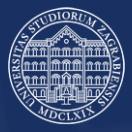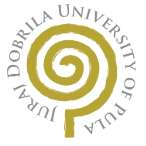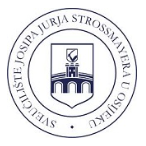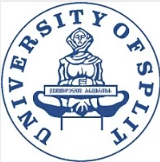Detailed introduction of the Catholic University of Croatia:
Introduction
The Catholic University of Croatia is a private university located in Zagreb, Croatia. It was founded by the Archdiocese of Zagreb and has close ties with the Roman Catholic Church.
Overview
Number of students and faculty: There are about 1,200 students and 75 academic staff.
Teaching departments: The university has several colleges covering a variety of disciplines such as social sciences, humanities, biomedicine, etc.
History
On October 12, 2004, the Croatian Bishops' Conference passed the decision to establish the Catholic University of Croatia at its 29th plenary meeting held in Zadar, designating the Archdiocese of Zagreb as the founder of the university and the Croatian Bishops' Conference as its sponsor.
On January 6, 2005, Archbishop Josip Bozanic established the Preparatory Committee for the Catholic University of Croatia and appointed five members. The committee completed its task on June 3, 2006, and Bozanic officially established the university.
On July 2008 In June, the Croatian Ministry of Science, Education and Sports issued a teaching license for psychology, sociology and history to the university. In September of the same year, Secretary of State Tarcisio Bertone consecrated the university building.
In June 2011, Pope Benedict XVI called the establishment of the university a "sign of hope".
Establishment time
June 3, 2006.
School strength
Rich disciplines and majors: The disciplines cover psychology, sociology, history, communication, nursing and other fields, providing students with a variety of professional choices .
High teaching quality: Focus on the combination of theory and practice, emphasize students' independent learning and critical thinking ability in the teaching process, and some majors are in line with international standards. The courses are taught in English, which attracts many international students.
Strong scientific research strength: In recent years, a series of scientific research projects have been carried out in the fields of social sciences, humanities and biomedicine, and certain research results have been achieved. It has actively carried out cooperation and exchanges with other universities and scientific research institutions at home and abroad, which has improved the school's scientific research level and international influence.
Institutional nature
Private university.
Educational philosophy
Based on the values and beliefs of Catholicism, it is committed to cultivating talents with noble moral qualities, solid professional knowledge and social responsibility, emphasizing the integration of knowledge and faith, and focusing on the comprehensive development of students. It not only imparts professional knowledge, but also cultivates students' humanistic qualities, moral concepts and social awareness, so that students can play an active role in their future careers and social life and contribute to the development of society.
Key laboratories and disciplines
Key disciplines: Psychology, sociology, history and other disciplines occupy an important position in the school's discipline system. These disciplines have a high level of teaching and research, and strong faculty, providing students with high-quality educational resources and a good learning environment.
Key experiments Laboratory: No clear key laboratories have been found for the school, but the school has carried out a series of scientific research projects in related disciplines, providing a platform for scientific research practice for students and teachers, and promoting the development of disciplines and academic exchanges.
Department
The school has multiple departments, including the Department of Social Sciences, the Department of Humanities, the Department of Biomedicine, etc. Each department has multiple professional directions, such as the Department of Social Sciences has psychology, sociology and other majors, the Department of Humanities has history, communication and other majors, and the Department of Biomedicine has nursing and other majors.
Ranking
The specific position of the school in the comprehensive ranking of world universities has not been found, but it is ranked in Croatia. The school has a certain reputation and influence in the field of higher education in Asia.
Expenses
Tuition fees vary according to majors and degree levels. Specific information can be found on the school's official website.
Campus Environment
Geographic location: Located in Zagreb, the capital of Croatia, the city has a profound cultural heritage and convenient transportation, providing students with a wealth of cultural, entertainment and internship opportunities.
Campus facilities: The campus has a unique architectural style, modern teaching facilities and a comfortable learning and living environment. The school's library has a rich collection of books, providing students with good learning resources. In addition, there are laboratories, computer rooms, gymnasiums and other facilities to meet students' learning and living needs.
-

University of Dubrovnik
-

University of Zagreb
-

VERN' University
-

University of Pula
-

University of Rijeka
-

University of Zadar
-

Zagreb University of Applied Sciences
-

J.J. Strossmayer University of Osijek
-

University of Split
-

Karlovac University of Applied Sciences
-

Mesoamerican University
-

Istmo University
-

Mariano Galvez University of Guatemala
-

Regional University of Guatemala
-

Galileo University
-

Francisco Marroquín University
-

Rafael Landívar University
-

University of the Valley of Guatemala
-

University of San Carlos of Guatemala
-

Technological Institute of Tlaxcala Plateau
-

Golfo University
-

Technological University of South Sonora
-

Technological University of Huejotzingo
-

Tizimín Institute of Technology
-

Chilpancingo Institute of Technology

